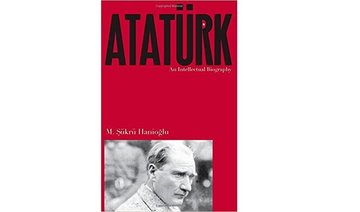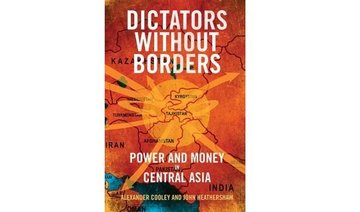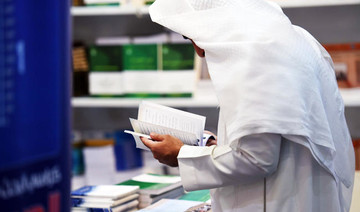DUBAI: The title of this book, a wonderful pun on Jane Austen’s “Sense and Sensibility,” sets the tone for the playful exchange of thoughts that is to come.
“Cents and Sensibility: What Economics Can Learn from the Humanities” is a written duel between Gary Saul Morson, a professor of the arts and humanities, and Morton Schapiro, the president of Northwestern University and a professor of economics. The entertaining intellectual spat is fought in a friendly, humorous and witty way and, despite their differences, both authors tend to agree on key issues.
The back-and-forth exchange signals two important trends. The first is that the humanities are in crisis. Subjects like history, geography, literature and languages are no longer popular. Fewer students are enrolling in arts and humanities courses because they offer limited jobs. It is not so much the case that students only care for money, but that students want to study subjects that will help them find employment.
The other, rather obvious, trend is that economic reasoning dominates our lives. Media outlets rely heavily on economists to explain worldwide events and offer their views on everything, from financial meltdowns to political crises.
The authors believe that, rather than saving the humanities by dehumanizing them, economics could benefit from understanding people better. Academics in the humanities enjoy reading stories, but economists do not, according to the book. In the humanities, the authors believe that stories inspire and teach empathy while in economics, they distract from the analysis of data.
In the book, Schapiro remembers the incident that made him appreciate the importance of incorporating humanities into economics. When he was in Cairo in 1981, the Egyptian government had finally given way to the pressures of international agencies and agreed to reduce the subsidies that had kept the cost of bread well below its market price. Schapiro recalls how he sat with economists who were thrilled that the government was going to interfere less in the domestic market. It seemed to be a success story until someone mentioned the number of people who lost their lives in the riots caused by the high cost of bread and another person evoked the possibility of widespread malnutrition.
On another occasion, the former Chief Economist of the World Bank Lawrence Summers signed a memo that suggested dumping toxic waste in third-world countries with a high incidence of mortality and low wages. Although Summers went on to claim the memo was sarcastic, this 1991 incident provoked a huge debate. The minister of environment in Brazil was particularly scathing and wrote: “Your reasoning is perfectly logical but totally insane… Your thoughts provide a concrete example of the unbelievable alienation, reductionist thinking, social ruthlessness and the arrogant ignorance of many conventional economists concerning the nature of the world we live in.”
One of the supposed problems with economics, according to the book, is that its restrictive thinking often undermines its usefulness. Furthermore, can economists really predict the future more accurately than those in the humanities and therefore implement more effective policies? It is a question that remains to be answered.
There are times when a political leader must decide which policy to follow and a formula that can be calculated mathematically will simply not do. Uncertain situations require sound judgment. Scientific knowledge cannot provide an adequate solution, but wisdom can prevent us from falling into a pit, the authors opine.
Famous Russian novelist Leo Tolstoy explained the difference between wisdom and science in the context of the Battle of Austerlitz, depicted in his literary epic, “War and Peace.” Before the battle, most Russian generals believed that French leader Napoleon was in an impossible situation. The novel’s hero, Prince Andrei, thought he had mastered the science of warfare and was convinced that Napoleon did not have a chance and was doomed to lose. General Kutuzov did not share Prince Andrei’s high hopes, which were pinned on scientifically-based plans. Experience had taught him not to expect any certainty in a battle. Indeed, the Battle of Austerlitz turned out to be Napoleon’s greatest victory.
In recent years, “the hubristic claim that economists (or experts in some other discipline) have arrived at hard scientific knowledge, capable of successfully guiding development, has led to disaster after disaster,” the authors wrote. In his book “Seeing Like a State: How Certain Schemes to Improve the Human Condition Have Failed,” author James C. Scott noted that it is difficult to understand why so many people have lost their lives because of schemes that were originally intended to improve their living conditions.
For example, in 1973, farmers and nomads in Tanzania were taken away from their homes and relocated along main roads so they could better access public services and replace traditional agricultural practices with modern practices. The result was an ecological disaster, which caused a severe famine.
“Time and time again, supposed experts backed by massive force, put into practice development plans that (do) not take into account the peculiarities of particular belief systems, the importance of local experience with conditions varying in no predictable way, the role of tacit knowledge that no one can specify but that can make all the difference and, above all, the need to proceed step-by-step to check whether one change has worked before implementing the next,” the authors wrote.
Another question often regarded as a puzzle for economists is why and how some countries develop faster than others, despite having similar levels of per capita income. In the mid-1960s, Ghana had rich reserves of natural resources, including oil and precious metals, while South Korea did not. However, 50 years later, who would have imagined that citizens in South Korea would be almost 20-times richer than those in Ghana?
According to the book, there is still no solid answer to this question, which perhaps shows that assessing issues from a purely economic standpoint may not always work.
Economics, which is suffering from its uniformity of approach, can learn the importance of empathy and the complexity of ethical issues from thinkers in the humanities.
It has also been suggested that reading great literature will help economists implement better policies, according to the book.
“If economists want to base their recommendations on a grasp of the cultures and peoples they desire to help, if they want to have a deeper sense of how economic questions like inequality actually affect human experience and if they want to take into account those aspects of experience that require narrative explanation, it may pay to study great literature” the authors state.
Literature teaches humility, a virtue that economists could benefit from, according to the book. The world today needs people who have the ability to think and communicate clearly and one great way to grow these skills and develop empathy, creativity and curiosity is through studying the arts and humanities.
Cents vs. sensibility: A duel between economics and the humanities
Cents vs. sensibility: A duel between economics and the humanities

What We Are Reading Today: ‘Grasshoppers, Locusts, and Crickets of the World’

Edited by Martin Husemann and Oliver Hawlitschek
Grasshoppers, locusts, crickets, bush crickets, and katydids make up the order of insects known as Orthoptera.
Although there about 30,000 species of Orthoptera around the world, many people pay little attention to them and even scientists know relatively little about them.
Yet the world of grasshoppers is a fascinating and diverse one.
What We Are Reading Today: The Ticos

Authors: Mavis Hiltunen Biesanz, Richard Biesanz
Written with the perspective of more than half a century of first-hand observation, this unparalleled social and cultural history describes how Costa Rica’s economy, government, education and health-care systems, family structures, religion, and other institutions have evolved, and how this evolution has affected and reflected people’s daily lives, beliefs, and their values.
The authors are particularly concerned with change since the economic crisis of the early 1980s and the structural adjustment that followed.
The book provides a comprehensive introduction to a country the writers know well, according to a review on goodreads.com.
What We Are Reading Today: ‘Private Finance, Public Power’

- Public-private negotiations over financial governance has evolved into an essential ecosystem of banking risk management
Authors: Peter Conti-Brown and Sean H. Vanatta
Banks in America are private institutions with private shareholders, boards of directors, profit motives, customers, and competitors. And yet the public plays a key role in deciding what risks are taken as well as how, when, and to what end. Public-private negotiations over financial governance has evolved into an essential ecosystem of banking risk management.
In “Private Finance, Public Power,” Peter Conti-Brown and Sean Vanatta offer a new history of finance and public policy in the US by examining the idiosyncratic way the nation manages financial risk across the public-private divide.
Covering two centuries, from the founding of the Republic to the early 1980s, Conti-Brown and Vanatta describe the often-contested, sometimes chaotic, engagement of bankers, politicians, bureaucrats, and others in the overlapping spaces of the public-private system of bank supervision.
What We Are Reading Today: ‘The Anxious Generation’ by Jonathan Haidt

In “The Anxious Generation,” Jonathan Haidt lays out the facts about the epidemic of teen mental illness that hit many countries at the same time. He then investigates the nature of childhood, including why children need play and independent exploration to mature into competent, thriving adults.
He explains why social media damages girls more than boys and why boys have been withdrawing from the real world into the virtual world, with disastrous consequences.
What We Are Reading Today: ‘The Standard Model’

Authors: Yuval Grossman and Yossi Nir
“The Standard Model” is an elegant and extremely successful theory that formulates the laws of fundamental interactions among elementary particles.
This incisive textbook introduces students to the physics of the Standard Model while providing an essential overview of modern particle physics, with a unique emphasis on symmetry principles as the starting point for constructing models.
“The Standard Model” equips students with an in-depth understanding of this impressively predictive theory.


















